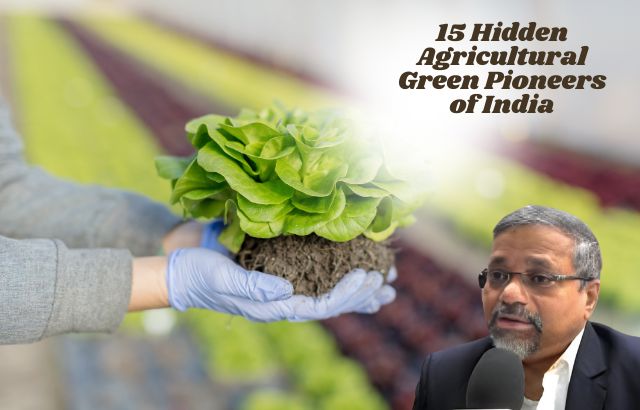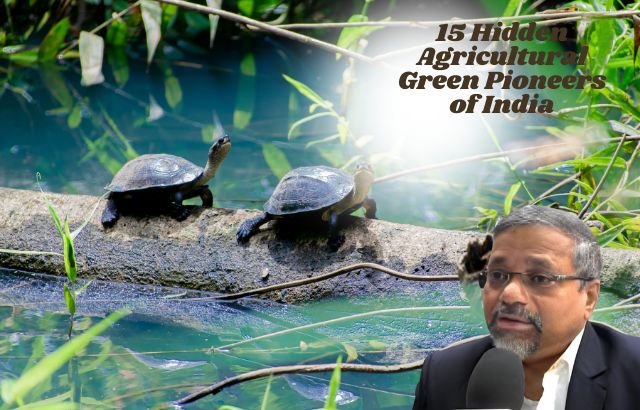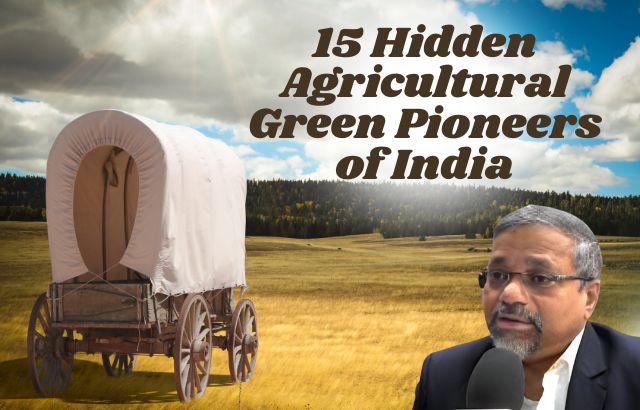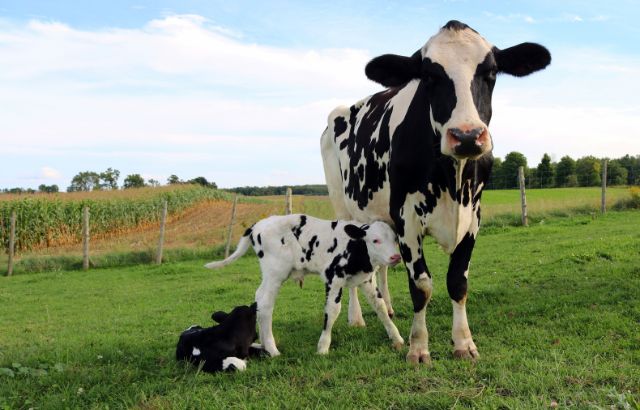India has a long history of agricultural wisdom, rooted in sustainable farming practices that date back thousands of years. While the modern environmental movement often emphasizes terms like “green innovation” or “sustainable agriculture,” many of these practices were already ingrained in Indian culture long before these terms gained popularity. This blog will shed light on 15 unsung agricultural green pioneers from India whose work helped conserve resources, protect biodiversity, and promote eco-friendly farming techniques, even though their contributions were not widely recognized at the time.

1. Kumaragurupara Pillai (1863–1948) – Advocate of Organic Farming in Tamil Nadu
Kumaragurupara Pillai is often regarded as one of the first advocates of organic farming in India. He introduced several methods to improve soil fertility without the use of chemical fertilizers. He promoted the use of natural composts, crop rotation, and indigenous seed varieties to maintain soil health and reduce dependency on chemical inputs.
Role of Green Innovator:
- Pioneered organic farming techniques in Tamil Nadu.
- Advocated for natural fertilizers like compost and green manure.
- Encouraged crop diversity to enhance soil fertility.
2. Sage Patanjali (circa 2nd century BCE) – The Father of Ecological Consciousness
Sage Patanjali, famous for his Yoga Sutras, is also considered one of the earliest environmentalists. His teachings emphasized the interconnectedness of all living beings and encouraged non-violence (Ahimsa) toward nature. His holistic approach to health and spirituality laid the foundation for sustainable practices, where nature was seen as sacred and humans as custodians of the earth.
Role of Green Innovator:
- Advocated for living in harmony with nature.
- Emphasized non-violence toward all living beings, which included plants and animals.
3. Raja Ram Mohan Roy (1772–1833) – Reforming Agriculture with Rational Thought
Raja Ram Mohan Roy, a social reformer, promoted rational thinking and progressive agricultural policies. His efforts extended to advocating for the protection of forests and the responsible use of land and water resources. His progressive views encouraged the development of agriculture in a way that respected the environment and community.
Role of Green Innovator:
- Promoted sustainable agricultural policies.
- Advocated for responsible land management and water conservation.
4. Mahatma Gandhi (1869–1948) – The Champion of Eco-friendly Farming and Self-Sufficiency
Mahatma Gandhi, though widely known for his leadership in the independence movement, also advocated for self-sufficiency and sustainable agriculture. He promoted the idea of Khadi (handspun cloth) as a symbol of self-reliance and eco-consciousness. He also encouraged farmers to use traditional, eco-friendly methods of farming like organic composting, rainwater harvesting, and crop rotation.
Role of Green Innovator:
- Promoted organic farming and self-sufficiency.
- Encouraged water conservation and traditional methods of farming.
5. Birbal (c. 1528–1586) – The Mughal Advisor Who Innovated in Water Conservation
Birbal, the wise advisor to Emperor Akbar, played a significant role in improving water management in the Mughal empire. He developed systems for equitable water distribution and irrigation, ensuring that water was used efficiently for agriculture and everyday life. His innovations helped farmers maintain crop yields even in arid conditions.
Role of Green Innovator:
- Developed water distribution systems for efficient irrigation.
- Promoted sustainable land and water management practices.
6. Sage Vishwamitra (circa 3rd century BCE) – The Spiritual Environmentalist
Sage Vishwamitra’s teachings in ancient texts highlight the sacredness of nature, particularly trees and rivers. His influence extended to the early practice of sustainable forest management, where people were encouraged to treat natural elements as sacred and protect them for the benefit of future generations.
Role of Green Innovator:
- Promoted environmental conservation through sacred reverence for nature.
- Advocated for the protection of forests and water bodies.
7. Dr. M. S. Swaminathan (1925–Present) – Architect of India’s Green Revolution with Sustainability
Dr. M. S. Swaminathan is often credited with leading India’s Green Revolution, which significantly boosted food production. However, his work was not just about increasing yields; it also included the promotion of sustainable agricultural practices. He advocated for water-efficient irrigation, crop diversification, and the use of indigenous knowledge to maintain soil health.
Role of Green Innovator:
- Advocated for sustainable farming practices during the Green Revolution.
- Promoted water-efficient irrigation and organic farming methods.
8. Sage Agastya (circa 1st century BCE) – Early Advocate of Crop Rotation and Biodiversity
Sage Agastya, a revered figure in Vedic literature, provided ancient guidance on the importance of crop rotation and biodiversity for maintaining soil fertility. His writings and teachings emphasized the interconnectedness of agriculture, ecology, and sustainability.
Role of Green Innovator:
- Promoted crop rotation and biodiversity for soil fertility.
- Advocated for sustainable land management.
9. Maharaja Ganga Singh (1880–1943) – The Water Conservationist of Rajasthan
Maharaja Ganga Singh of Rajasthan was a visionary who understood the importance of water conservation in an arid land. He led the construction of dams, canals, and rainwater harvesting systems in Rajasthan, helping local farmers use water efficiently. His foresight ensured that agriculture in the region could continue to thrive despite water scarcity.
Role of Green Innovator:
- Introduced large-scale water conservation methods, including dams and rainwater harvesting.
- Ensured sustainable agricultural practices in Rajasthan’s desert landscape.
10. Kisan Baburao Hazare (1940–Present) – Pioneer of Organic Farming in Maharashtra
Kisan Baburao Hazare, popularly known as Anna Hazare, has been a strong advocate of organic farming in Maharashtra. Through his work in the village of Ralegan Siddhi, he promoted sustainable agricultural practices, water conservation, and rural development. His movement helped restore degraded land and water resources, making farming profitable again.
Role of Green Innovator:
- Promoted organic farming techniques and water conservation.
- Revived rural communities through sustainable agricultural practices.
11. Chandrashekhar Azad (1906–1931) – The Freedom Fighter Who Also Fought for Nature
Chandrashekhar Azad, though primarily remembered for his role in India’s independence struggle, also demonstrated environmental consciousness. His efforts to protect forests and the natural environment in his home state of Uttar Pradesh reflected his commitment to sustainability and conservation.
Role of Green Innovator:
- Advocated for forest conservation and sustainable land use.
- Promoted the responsible management of natural resources.
12. Shivaji Maharaj (1630–1680) – Protector of Forests and Natural Resources
Shivaji Maharaj, the great Maratha king, was not only a warrior but also a proponent of sustainable land and resource management. He is credited with initiating forest conservation efforts in the Western Ghats and establishing a system of wildlife protection in his kingdom.
Role of Green Innovator:
- Advocated for forest conservation and wildlife protection.
- Instituted policies to regulate the use of natural resources in his empire.
13. Sage Kanva (circa 1st century BCE) – The Vedic Innovator of Agricultural Sustainability
Sage Kanva is known for his contributions to early agricultural texts in the Vedas. He emphasized the importance of rain-fed agriculture and the use of natural methods to enhance crop productivity. His teachings on soil health and sustainable practices laid the foundation for future generations of farmers.
Role of Green Innovator:
- Promoted rain-fed agriculture and soil health.
- Advocated for sustainable farming methods in ancient India.
14. Rani Durgavati (1524–1564) – The Forest Protector
Rani Durgavati of Gondwana is known for her leadership in protecting the forests of her kingdom. She fought against deforestation and advocated for preserving the region’s biodiversity, ensuring that future generations could benefit from the natural wealth of the forests.
Role of Green Innovator:
- Led efforts to conserve forests and protect biodiversity.
- Implemented sustainable forest management practices.
15. Brahma Rishi Vishnu Sharma (circa 5th century BCE) – The First Agricultural Scientist
Vishnu Sharma, a scholar from ancient India, wrote extensively on agriculture and farming practices. He is known for his early recognition of the importance of soil fertility, irrigation systems, and pest control. His work contributed to the advancement of sustainable agricultural knowledge in ancient India.
Role of Green Innovator:
- Developed early methods for pest control and soil fertility management.
- Advocated for sustainable farming techniques based on empirical observations.
FAQs About India’s Agricultural Green Innovators

1. What is a Green Innovator in Agriculture?
A green innovator in agriculture is someone who develops or promotes practices, technologies, or strategies that help reduce environmental harm while increasing agricultural productivity. This includes techniques that preserve soil, conserve water, protect biodiversity, and ensure the sustainability of farming.
2. Why Were These Innovators Not Recognized as Green Innovators?
The modern environmental movement and terminology of “green” or “sustainability” emerged much later. These individuals were often focused on practical farming methods or social reforms and did not necessarily frame their work within the context of modern environmentalism, even though their practices were environmentally beneficial.
3. How Did These Innovators Contribute to Sustainable Agriculture?
These pioneers promoted practices such as organic farming, water conservation, crop rotation, forest protection, and the use of indigenous knowledge. Their contributions laid the foundation for eco-friendly farming techniques that are still relevant today.
4. What Can We Learn from These Innovators?
These innovators demonstrate that sustainability is not a modern invention but has deep roots in India’s agricultural history. Their methods offer valuable lessons for modern farmers in terms of conserving resources, reducing waste, and fostering ecological harmony.
Green Innovation Calculations: Water Savings Through Rainwater Harvesting

Let’s consider a simple calculation based on rainwater harvesting, a technique promoted by several agricultural pioneers.
- Scenario:
- A farmer collects rainwater through a simple rainwater harvesting system that captures 1000 liters of water during each rainy season.
- The farmer uses this rainwater to irrigate crops, saving on the 200 liters/day of water normally used from the community water supply.
Calculation for Water Savings:
- If the farmer uses 200 liters/day for 30 days during the dry season:
- Water Saved: 200 liters/day × 30 days = 6,000 liters/month.
- Annual Water Savings: 6,000 liters × 12 months = 72,000 liters/year.
This illustrates how a simple rainwater harvesting system can save significant amounts of water and reduce reliance on other water sources.
Conclusion:

India’s agricultural green pioneers were ahead of their time, practicing methods of sustainability that modern environmentalists are only now beginning to embrace. Their work in resource conservation, eco-friendly farming techniques, and land management continues to inspire today’s agricultural revolution. As we face environmental challenges, it’s crucial to revisit these ancient practices and adapt them to create a more sustainable future for agriculture in India and around the world.












